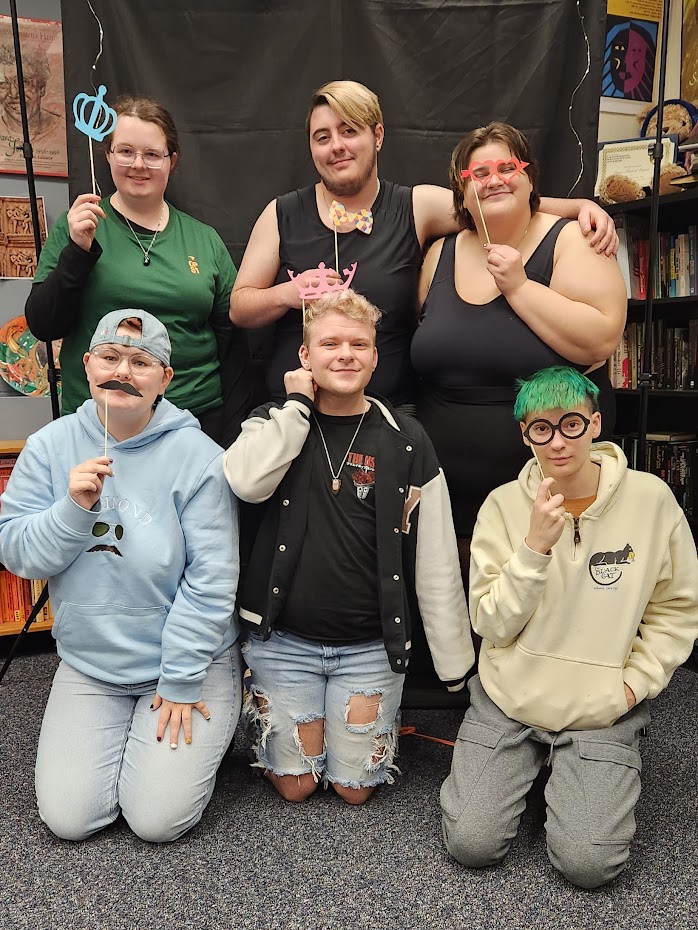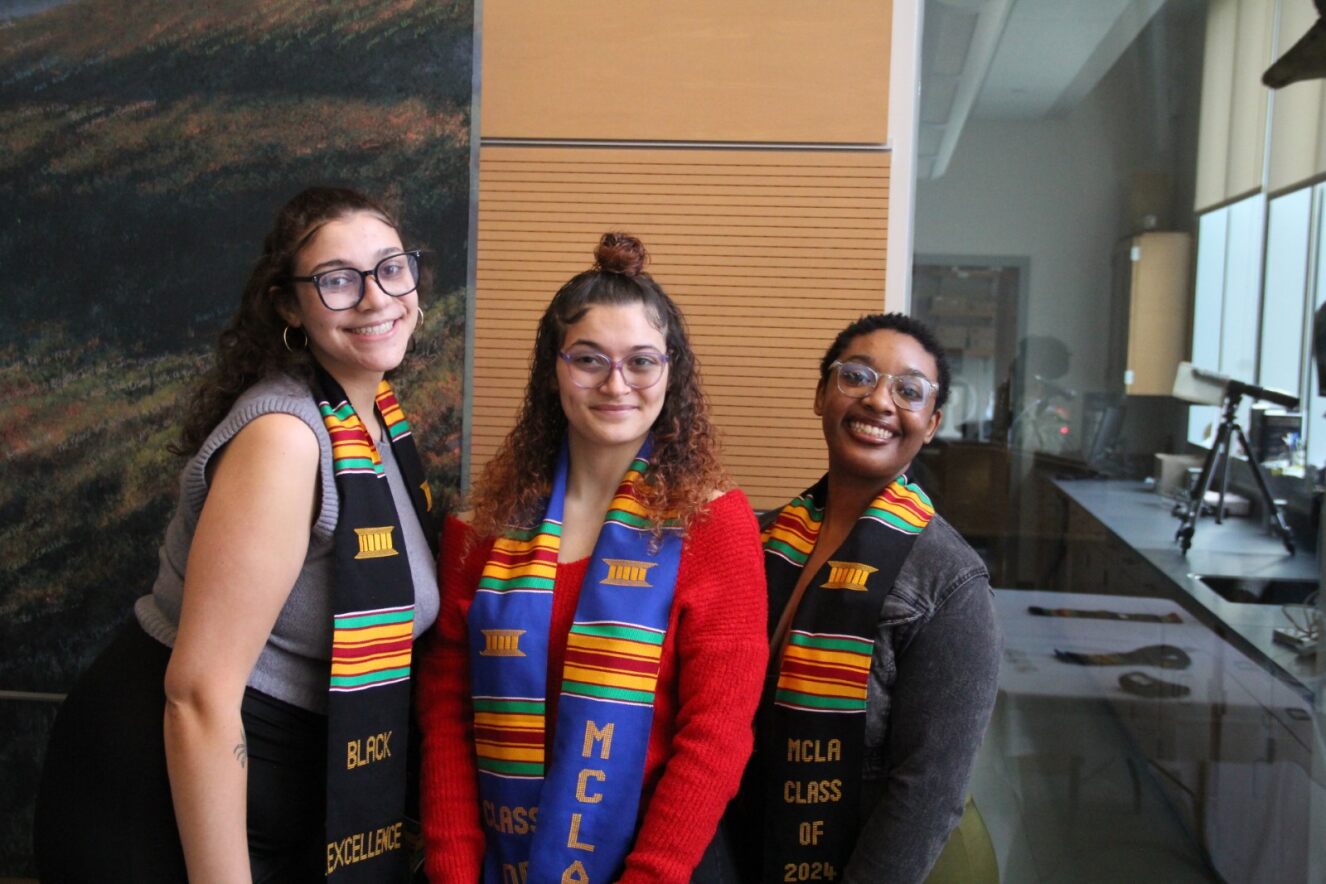Cultivating Community: Day of Dialogue, REJI Team, and Expanded Gender & Sexuality Center Programming Show MCLA’s Commitment to DEI
MCLA’s annual Day of Dialogue is a campuswide day of workshops and discussions that focus on issues of diversity, equity, and inclusion. Classes are suspended so that the community may come together to engage with each other and learn from one another.
This academic year’s Day of Dialogue, held October 18, 2023, saw almost 500 attendees. The theme, Cultivating a Sense of Belonging in Uncertain Times through a Racial Equity Lens, encouraged us to continue to navigate the increasing diversity of incoming students and confront the historical systems of oppression that have influenced our higher education institutions.
 The day’s presentations included the modules TRIO Scholars Explore Racial Equity,
Social Identities & Inclusion; Femme in Public, an Examination of Gender and its Implications
through a Cultural and Racial Lens; and Hear Me Out: Addressing Linguistic Bias. An
in-person keynote lecture was given by Latrina Denson, the associate dean of students
for community and belonging at Mt. Holyoke College. Denson also serves on the leadership
team for the Racial Equity & Justice Institute (REJI) consortium at Bridgewater State
University.
The day’s presentations included the modules TRIO Scholars Explore Racial Equity,
Social Identities & Inclusion; Femme in Public, an Examination of Gender and its Implications
through a Cultural and Racial Lens; and Hear Me Out: Addressing Linguistic Bias. An
in-person keynote lecture was given by Latrina Denson, the associate dean of students
for community and belonging at Mt. Holyoke College. Denson also serves on the leadership
team for the Racial Equity & Justice Institute (REJI) consortium at Bridgewater State
University.
Denson’s speech, Cultivating a Sense of Belonging to Promote Racial Equity and Justice is Urgent . . . So Let’s Slow Down, focused on how an equitable and just community requires acknowledging and dismantling the characteristics of the systems of power that invite and condition us into toxic thinking and behaviors.
According to Denson, one of those characteristics is a sense of urgency. An organization working toward racial equity and justice through urgency reinforces existing power hierarchies such as the control of decision-making, unrealistic expectations about how much can get done in a period of time, and perfectionism based on expected standards defined by those in power. This sense of urgency is often perpetuated on the backs and shoulders of BIPOC students, faculty, and staff, resulting in burnout.
During this interactive session, participants explored what it means to cultivate a community of care that values getting it right by slowing down, pausing, and creating realistic action plans based on the lived experiences of students, faculty, and staff through guided self-reflection, and small and large group discussions.
The REJI consortium, on whose leadership team Denson serves, charges each participating institution with creating and identifying a group of folks that push forward the agenda of creating a more racially equitable campus. This group then focuses on creating racially equitable practices to transform institutions and close achievement gaps that too often affect students of color.
Throughout the year, MCLA’s REJI Team had an opportunity to meet once a month for two hours to discuss topics on the year’s theme, The Fierce Urgency of Now — Advancing Racial Equity in the Face of the Counteroffensive. Sessions included Equity-minded Student Belonging and Mattering Practices, Racial Equity in Data-Informed Decision-making, and Moving from the Racial Equity Plan to Racial Equity Progress.

Also during the 2023-2024 school year, under the guidance of Program Coordinator of Gender and Sexuality Ara Phoenixx, the Gender & Sexuality Center (GSC) expanded its programming and reach, fostered ongoing collaboration with on-campus and community organizations, and offered new student internship opportunities. The GSC launched two new gender-based student groups: the Femme Forward Coalition, which provides space for the creation of feminist community and activism, and the My Masculinity Dialogue Group, which allows men and masculine folks to connect in community and explore masculinity in a way that is healthy, beneficial, and individual.
This academic year’s GSC programming explored period product accessibility, healthy relationships, diversity of queer experiences, transgender celebration and grief, self-care, and shared community, among other topics. The group was fortunate to be able to partner with a variety of on-campus groups and departments — Women, Gender, and Sexuality Studies faculty; the Residence Hall Association; resident advisors; the e-sports lounge; intramurals; and the Queer Student Union — as well as community groups and businesses, including the Elizabeth Freeman Center, Wild Soul River, Christo’s Pizza, the Berkshire Queer History Project, and MCLA alumni.
In addition to participating in programs and events, students had the opportunity to take on leadership roles in the GSC while earning financial compensation or class credit through work study, a gender and sexuality internship, and a Berkshire Queer History Project internship.
